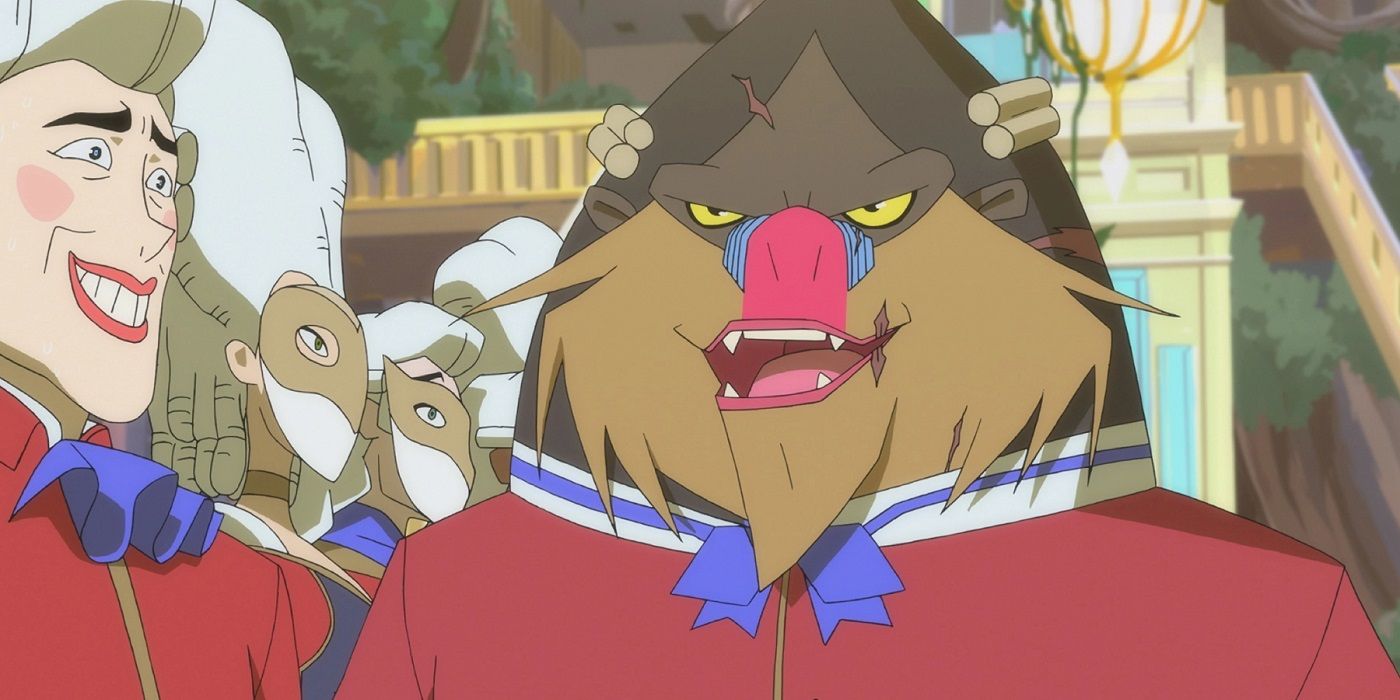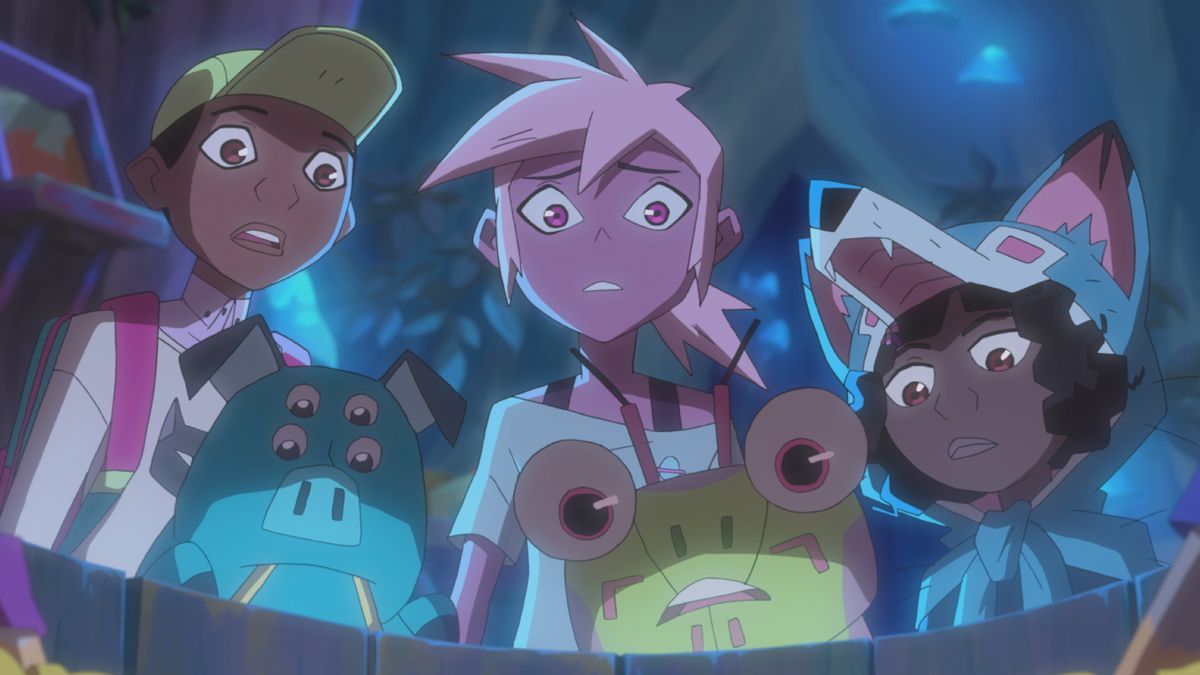When looking at it on the surface, Kipo and the Age of Wonderbeasts is another adventurous animated tween-to-teen cartoon with quirky characters in a wacky world. And, on the surface, that is true. But, much like the full identity of its titular protagonist, the show has layers that enable it to bring up more complicated but meaningful ideas to its potentially younger demographic. By the time season 2 is nearing its end, it starts bringing some lofty themes to the table about how people come together, break apart, and co-exist. By season 3, the show goes neck deep into exploring ideas about what it means to be a good leader, and how people groups who hurt each other can resolve conflict, and what it takes for that resolution to stick.
The post-apocalyptic world Kipo and company inhabit does have an inherent conflict at play from the beginning: humans have been stuck underground for some time, fearful of living on a surface where animals have mutated and gained sentience, as well as enormous size in some cases. This tension between 'mutes' (shorthand for 'mutants') and humans serves as the overall backbone of the show's conflicts, and it takes a look at different angles and sides of this. But there comes to be antagonistic figures whose perspectives and goals are inherently dangerous for the greater good and the majority of the population. As the show goes on, the livelihood of both humans and 'mutes' becomes threatened, and through some clever plot trickery, the show manages to emulate the stakes of things like revolution and dictatorship without oversimplifying.
While Kipo herself believes in forgiveness and hope and unity, she does have to accept that not everyone will play nice with this, no matter how many olive branches she might extend. Likewise, there are costs to handling life-or-death types of conflict, and unless both sides mutually commit to peace, some of those costs will be paid. Empathy and acceptance are a path to safety for everyone, but in most cases, that just isn't going to work for everyone. In taking these themes seriously, the show is promoting an extremely relevant concept in the modern landscape of politics in 2020: that there are no easy answers to resolving conflict between people.
The show makes a case for traits which make a great leader in how Kipo evolves across the series -- all without erasing all negative consequences of Kipo's approach. There are multiple instances where Kipo's attitudes and intentions lead to something not so great, and she has to accept those consequences, but continues to work toward her goals all the same, and those goals of hers elevate to higher and loftier places as the narrative goes on. The show also coyly highlights in different ways how those who have gained the most from how things are and have the most to lose are passively if not ignorantly resistant to being confronted with the problems hurting others less fortunate than themselves.
Without giving away specifics, it is easy to pick up on whiffs of American history, in particular. The way antagonist Scarlamagne is characterized - from how he enacts his intentions down to how he talks, dresses, and his overall aesthetic - certainly has some stark imagery for a particular period of American history that our society might wish to forget. And Season 3's conflict brings with it some surprisingly modern implications of misinformation and manipulation. While Season 2 has a conflict fueled by passion and a desire for revenge, Season 3 entails one born from a perceived logic of how things 'ought' to be, born from one's environment. Kipo herself overcomes these conflicts in part because she is capable of merging intense emotion (empathy, sympathy, and love) with factual knowledge and understanding of different sides of a conflict. While it may be about humans and various breeds of mutant creature, there are absolutely undertones of race and nationality at play in a way that evokes various tensions inherent to America's 'melting pot' culture, for better and for worse.
During a year like 2020, it can be easy to dismiss the other side opposing ours. And in many ways, for many people groups who have faced generations of injustice, that may even be warranted. But Kipo reminds us - and in turn is actively teaching younger audiences - that even if we feel we may have 'the high road,' and that our beliefs will lead to a greater good, empathy is the ultimate tool in bringing both sides of any conflict together, and a truly great leader is capable of wielding empathy and logic together, intertwined.
Kipo and the Age of Wonderbeasts uses fantasy imagery and plot devices to bring to a young audience's attention questions about the history of humanity, preparing them through fiction for asking the kinds of serious questions they will eventually be able to use to navigate the uncomfortable realities of the world we live in. The show argues that we can make allies of enemies, but only if we - and they - are willing to give a change to a change in society when the way things have been going just isn't working. And at the end of the day, the road to healing societal wounds is long, winding, and complex.
Kipo and the Age of Wonderbeasts can be streamed on Netflix.


